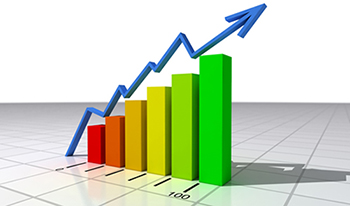L’economia bulgara registra una nuova crescita del 3,4% nel primo trimestre secondo l’Istituto Nazionale di Statistica.
 Motore principale della crescita sono i consumi finali (+4,1% nel primo trimestre del 2017 su base annua) e soprattutto quelli delle famiglie. Secondo gli esperti, uno dei motivi è l’alta concorrenza tra i datori di lavoro per ottenere la forza di lavoro più qualificata che traina l’aumento degli stipendi (+9,1% nel primo trimestre) e di conseguenza – anche i consumi.
Motore principale della crescita sono i consumi finali (+4,1% nel primo trimestre del 2017 su base annua) e soprattutto quelli delle famiglie. Secondo gli esperti, uno dei motivi è l’alta concorrenza tra i datori di lavoro per ottenere la forza di lavoro più qualificata che traina l’aumento degli stipendi (+9,1% nel primo trimestre) e di conseguenza – anche i consumi.
Altri fattori di crescita sono i bassi interessi sui depositi e sui crediti e l’inflazione. In aumento anche l’export (+14,8% nel primo trimestre), soprattutto quello verso i paesi extra UE, che però rimane insufficiente a compensare l’aumento delle importazioni (+21%). In calo gli investimenti (-5,4% nel primo trimestre su base annua) attribuibile alla situazione politica incerta e alla mancanza di progetti europei in corso.
22.05.2017 – Sofia
